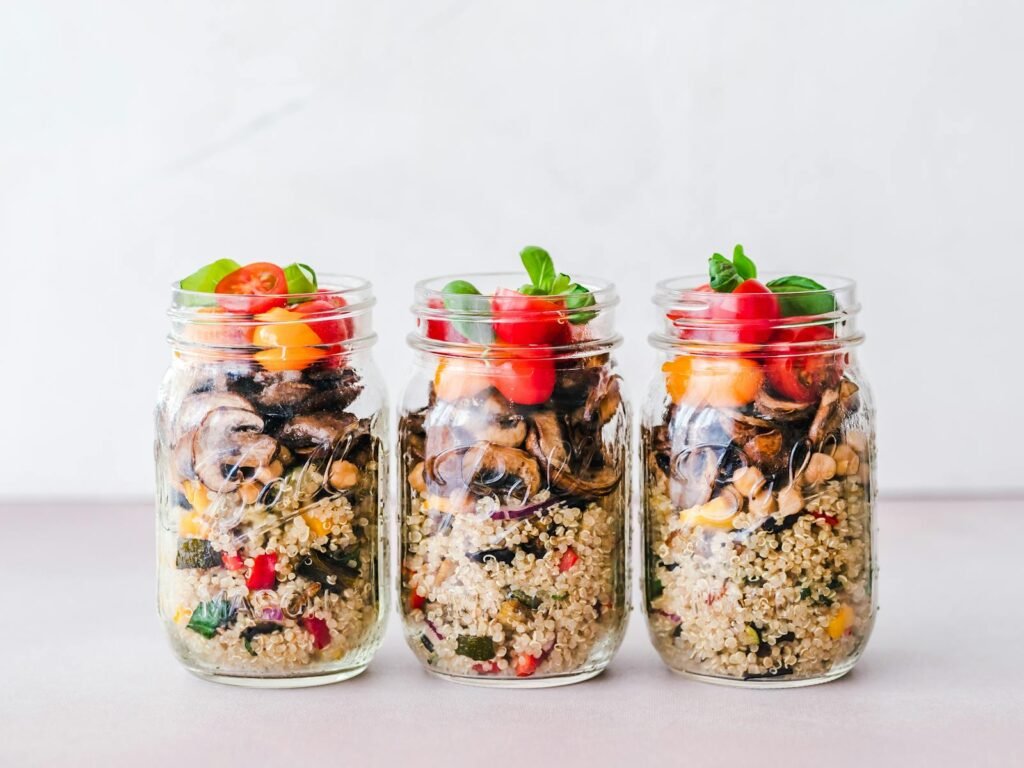Castor oil has gained attention as a natural remedy for menopause symptoms. You might wonder if this age-old oil can help ease hot flashes, mood swings, or other changes you’re experiencing. Castor oil may offer some relief for menopause symptoms, but research is limited and results vary from person to person.
During menopause, your body goes through big changes. Some women look for alternatives to hormone therapy. Castor oil is one option some people try. It’s said to help balance hormones and reduce inflammation. You can apply it to your skin or take it by mouth.
Before you try castor oil, talk to your doctor. While it’s natural, it can have side effects. Your healthcare provider can help you decide if it’s safe for you. They can also suggest other ways to manage menopause symptoms. Remember, what works for one person may not work for another. It’s important to find the right approach for your body and needs.
Understanding Menopause and Hormonal Changes
Menopause is a natural part of aging for women. It happens when your body stops having monthly periods. This big change usually starts between ages 45 and 55.
Your hormones play a key role in menopause. As you get older, your ovaries make less estrogen and progesterone. These hormones control your periods and fertility.
The drop in hormones can cause different symptoms:
- Hot flashes
- Night sweats
- Mood swings
- Trouble sleeping
- Vaginal dryness
Every woman’s experience is unique. You might have all these symptoms or just a few.
Your body goes through three stages during this time:
- Perimenopause: Your periods become irregular
- Menopause: You haven’t had a period for 12 months
- Postmenopause: The years after menopause
Hormonal changes affect your whole body. You may notice:
- Thinning hair
- Dry skin
- Weight gain
- Loss of breast fullness
These shifts can be hard. But remember, they’re normal. Your doctor can help if symptoms bother you too much.
Keeping a healthy lifestyle is important during menopause. Eat well, exercise, and get enough sleep. These habits can ease your symptoms and keep you feeling good.
The Role of Castor Oil in Menopausal Relief
Castor oil offers potential benefits for women experiencing menopause symptoms. This natural remedy may help with discomfort and promote overall well-being during this transition.
Symptom Management with Castor Oil Packs
Castor oil packs can help ease menopausal symptoms. You apply the oil to your skin, often on your abdomen, and cover it with a cloth. This method may reduce inflammation and pain.
The main component of castor oil, ricinoleic acid, has anti-inflammatory properties. This can help with joint pain and muscle aches common during menopause.
Castor oil packs might also improve sleep quality. Many women find the warmth and gentle pressure soothing. This can lead to better relaxation and less insomnia.
Some women report relief from hot flashes when using castor oil packs. While more research is needed, the cooling effect may help manage this common symptom.
Ensuring Safety and Quality in Use
When using castor oil for menopausal relief, safety is key. Always choose high-quality, cold-pressed castor oil. This ensures you get the most benefits without harmful additives.
Start with a small amount to test for any skin reactions. If you experience irritation, stop use immediately. It’s best to consult your doctor before starting any new treatments.
Don’t use castor oil packs while menstruating. They may increase blood flow, which isn’t ideal during your period. Also, avoid using them if you’re pregnant or trying to conceive.
Store your castor oil in a cool, dark place to maintain its quality. Replace it if you notice any changes in smell or texture.
Complementary Natural Remedies and Lifestyle Changes
Natural approaches can help ease menopause symptoms. These methods work with your body to promote balance and well-being. Let’s explore diet, exercise, stress reduction, and supportive therapies that may offer relief.
Diet and Exercise
What you eat and how you move can greatly impact your menopause experience. A balanced diet rich in fruits, vegetables, whole grains, and lean proteins can help manage symptoms. Foods high in phytoestrogens, like soy products and flaxseeds, may ease hot flashes.
Regular exercise is key for maintaining a healthy weight and mood. Aim for 30 minutes of moderate activity most days. This can include:
- Brisk walking
- Swimming
- Yoga
- Cycling
Weight-bearing exercises help keep your bones strong, reducing the risk of osteoporosis. Staying hydrated is also important, especially if you’re dealing with hot flashes.
Stress-Reduction and Emotional Well-Being
Menopause can be an emotional time. Stress management techniques can help you feel more balanced. Try these methods:
- Deep breathing exercises
- Meditation
- Progressive muscle relaxation
- Journaling
Getting enough sleep is crucial for emotional well-being. Create a relaxing bedtime routine and keep your bedroom cool and dark. If hot flashes disrupt your sleep, try moisture-wicking pajamas or bedding.
Connecting with others who understand what you’re going through can be helpful. Consider joining a support group or talking with friends who are also experiencing menopause.
Supportive Therapies and Healthcare Provider Guidance
Natural therapies can complement your menopause care plan. Herbal remedies like black cohosh, red clover, and evening primrose oil may help with symptoms. Always check with your healthcare provider before starting any new supplements.
Acupuncture and massage therapy can promote relaxation and may ease symptoms like hot flashes and mood swings. Some women find relief with aromatherapy using essential oils like lavender or peppermint.
Regular check-ups with your healthcare provider are important. They can monitor your health, address concerns, and suggest personalized treatments. Don’t hesitate to discuss any symptoms or questions you have about menopause.
Castor Oil for Skin and Hair Health During Menopause
Castor oil offers benefits for skin and hair during menopause. It can help with common issues like dryness, thinning hair, and aging skin.
Enhancing Hair Growth and Vitality
Castor oil may boost hair growth and health during menopause. You can massage it into your scalp to help stimulate hair follicles. This oil is rich in fatty acids that can nourish your hair from root to tip.
Try mixing castor oil with other oils like coconut or almond for easier application. Leave it on for 30 minutes to an hour before washing. You might see less hair fall and more shine over time.
Castor oil can also help with dry scalp and dandruff. Its anti-inflammatory properties may soothe an itchy scalp. Regular use could lead to thicker, healthier-looking hair.
Skin Care Benefits
Your skin can become drier and less elastic during menopause. Castor oil can help keep it moisturized and supple. It’s rich in vitamin E, which is good for skin health.
You can use castor oil as a night moisturizer. Apply a thin layer to clean skin before bed. It may help reduce the look of fine lines and wrinkles over time.
For extra dry areas, mix castor oil with shea butter for a richer cream. The oil can also soothe inflamed skin. Its fatty acids may help your skin retain moisture and stay soft.
Frequently Asked Questions
Castor oil has gained attention for its potential benefits during menopause. Let’s explore some common questions about its use and effects.
What are the benefits of using castor oil during menopause?
Castor oil may help with several menopausal symptoms. It can moisturize dry skin and hair. Some women find it eases joint pain. It might also improve sleep quality and reduce stress.
Can applying castor oil to the abdomen assist in managing menopausal weight gain?
There’s no strong evidence that castor oil helps with weight gain. Massaging it on your abdomen might improve digestion. This could help you feel more comfortable. But it’s not a replacement for a healthy diet and exercise.
In what ways can castor oil be used to address hormonal imbalances in women experiencing menopause?
Castor oil packs may support your liver function. A healthy liver helps balance hormones. You can apply warm castor oil packs to your abdomen. Some women report feeling better after using them regularly.
Is there evidence to support the efficacy of castor oil in alleviating hot flashes?
Scientific proof is limited for castor oil’s effect on hot flashes. Some women say it helps them feel cooler. You could try massaging a small amount on your neck and chest. See if it makes a difference for you.
How does castor oil influence estrogen levels in menopausal women?
Castor oil doesn’t directly change estrogen levels. It may support your body’s natural hormone production. This happens by promoting liver health and reducing inflammation. But more research is needed to confirm these effects.
What is the role of castor oil in mitigating vaginal dryness during menopause?
Castor oil can be a natural moisturizer for your skin. Some women use it to relieve vaginal dryness. Always talk to your doctor before using it for this purpose. They can advise you on safe ways to apply it.





